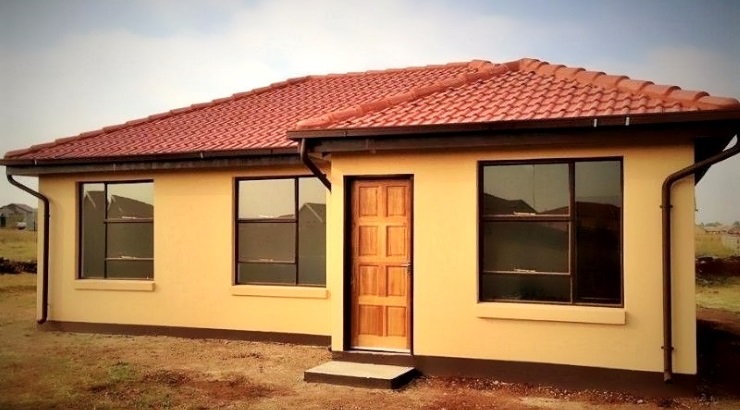Residential Projects
State Lines Up Incentives for Builders of Low-Cost Home
The government has set aside 7,500 acres for construction of low cost houses.

The government will offer several incentives to builders of low-cost housing in a bid to spur the development of affordable housing across the country, a State official has said.
Charles Hinga, the principal secretary in the Ministry of Transport and Infrastructure, recently told reporters in Nairobi that the incentives are aimed at drawing developers into the low-income housing market, which has remained ignored for years.
Mr Hinga said the local real estate sector has focused on the high-income housing segment due to enormous returns from investments, but the government is keen to defeat the market forces that have made the construction sector snub the low-cost housing category.
“To spur development of more low-income housing units, the government has set aside 7,500 acres of serviced land for developers to construct affordable houses,” he said.
Providing land to developers is seen as a game changer in the sector, as high land values have made building low-cost homes impossible.
According to Mr Hinga, Kenya has one of the highest prices of land in Africa and as a result, developers tend to focus on building high-end houses to make a return on their investments.
“This has led to the development of informal settlements as the poor cannot find affordable, decent houses,” he said.
Official statistics show that the national housing demand currently stands at about 250,000 units annually: 80,000 units for the high-income group, and 170,000 for the low-income households.
RELATED: Big Hurdles in Way of Kenya’s Low-Cost Housing Scheme
However, the real estate sector builds an average of 50,000 housing units a year: 49,000 units for the rich, and a meagre 1,000 units for the low-income segment of the population.
In addition to land provision, the government has halved corporate tax for property developers who build at least 100 low-cost units to encourage the construction of at least 200,000 truly affordable houses a year.
Other incentives include a 15-percent tax relief for taxpayers who purchase houses under the affordable housing scheme and the scrapping of stamp duty for first-time buyers of homes.
The government is also establishing the Kenya Mortgage Refinance Company, which will lend banks and saccos cash to extend inexpensive mortgages to low-income earners.
The State has also pledged to install critical infrastructure such as sewer lines, water supply, power, roads, and drainage in areas where investors have proposed to build low-cost housing estates.
Building such infrastructure takes about 25 per cent of the total cost of a project. This cost is usually passed on to the homebuyer – which raises the prices of property.
Currently, individual housing firms must install requisite infrastructure to entice buyers – a situation that inflates costs.
The government now hopes that the planned incentives will help developers come up with houses that sell for as little as Sh500,000.
RELATED: How Kenya Plans to Deliver Homes for Sh500,000
Transport, Urban Infrastructure and Housing Cabinet Secretary James Macharia recently said that developers will be required to take advantage of various building technologies and economies of scale to deliver “truly affordable” homes for citizens.
For a start, the government is engaging private developers to undertake a pilot project in Mavoko, Machakos County, which will serve as a prototype for a planned national roll-out of an ambitious housing plan that aims to meet the needs of low-income urban workers.
Under the pilot project, a total of 8,000 low-cost and three-bedroom houses will be built on a 55-acre parcel of land that has been provided by the government.
Each of the houses will be sold for between Sh1 million and Sh1.5 million, Mr Macharia said.
The project is expected to promote the use of low-cost building technologies that are currently shunned by many Kenyans who view them as inferior compared to traditional brick-and-mortar structures.
A total of Sh750 billion will be spent to build 500,000 low-cost homes across Kenya in the next five years.
According to the State, a low-cost house costs a maximum of Sh3 million.
“We are thinking of houses where the sale value will be around Sh3 million. These are houses such as studios, two bedroom and three bedroom units. If we go beyond Sh3 million it will not be affordable housing anymore,” he said.
RELATED: Earn Sh25,000/Month? You Now Qualify for a Mortgage
According to Mr Macharia, some 800,000 houses will be built under the private-public partnership (PPP) model while the remaining 200,000 homes will be built under a social housing scheme – where a unit will be sold for between Sh500,000 and Sh700,000.
Social housing refers to dwellings provided for rent or sale at a fairly low price by housing associations and local governments. It is usually offered to citizens on extremely low incomes or those with special needs.














